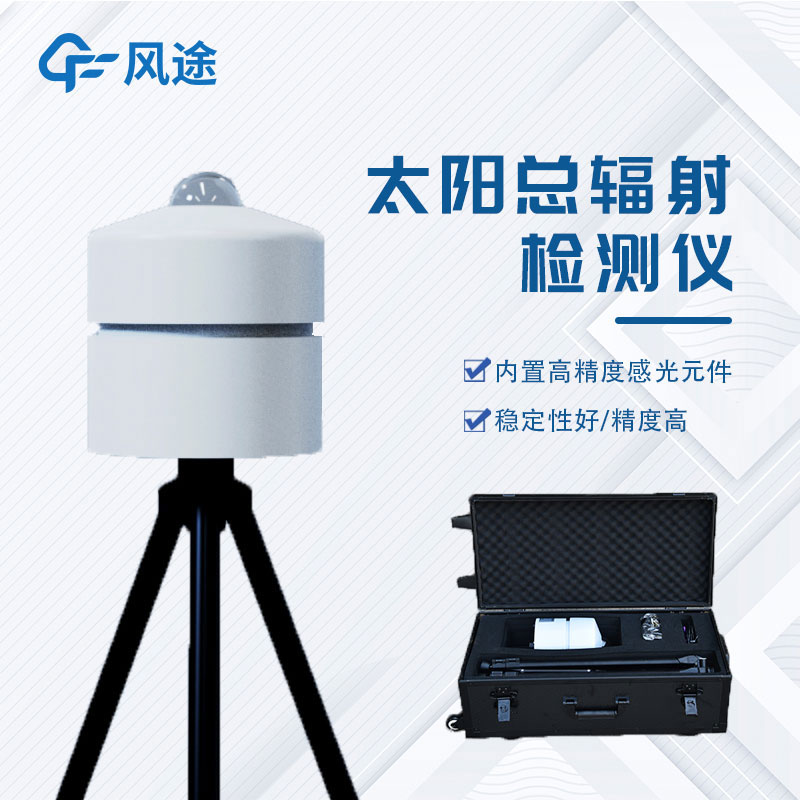Meteorological environment monitoring equipment supplier
Insist on doing high-precision customer favorite technology products
Total solar radiation measurement instrument FT-BF1 is a device that can measure total solar radiation data with high integration, low power consumption, quick installation and easy field monitoring. It also meets the requirements of ISO9060 and WMO World Meteorological Organization Specification (CIMO Guide) technical specifications and the latest Chinese meteorological standard "GB/T 19565-2017 Total radiation sensor".
The total solar radiation measuring instrument FT-BF1 uses high-precision sensor, built-in high-precision sensor, good stability, high precision; The quartz glass cover is used outside to avoid the influence of the external environment, and its spectral range is 0.28 ~ 3μm total solar radiation intensity. This product is equipped with GPRS, Bluetooth, 485 to USB three transmission methods, power consumption of 1.75W, removable lithium battery pack, capacity 12000maH, battery life ≥50h. The bracket is made of aluminum alloy and can be retractable, and is equipped with a shock-absorbing protective rod box, which is convenient to carry.
Why measure total solar radiation?
Total solar radiation is measured for several reasons:
1. Climate change research: Solar radiation has an important impact on the Earth's climate. By measuring total solar radiation, we can understand the intensity and variability of solar activity, so that we can better predict and respond to the effects of climate change.
2. Weather monitoring: Total solar radiation is one of the main factors affecting Earth space weather. Measuring total solar radiation helps predict solar storms and other space weather events for meteorological safety.
3. Energy utilization: Solar energy is a clean and renewable energy source, and the total solar radiation is a key parameter of solar power generation. By measuring total solar radiation, we can assess the power generation efficiency and cost-effectiveness of solar power plants, thereby making better use of solar energy.
4. Agricultural production: Solar radiation has an important effect on plant growth and yield. Understanding the distribution and variation of total solar radiation helps to plan and optimize agricultural production and improve crop yield.
5. Earth science research: Total solar radiation data can also help us understand Earth's radiation balance, changes in the ozone layer, and changes in Earth surface temperature and other Earth science research issues.
In short, measuring the total solar radiation helps us better understand the problems of solar activity, climate change, space weather, energy utilization and earth science research, and provides a scientific basis for the sustainable development of human society.
